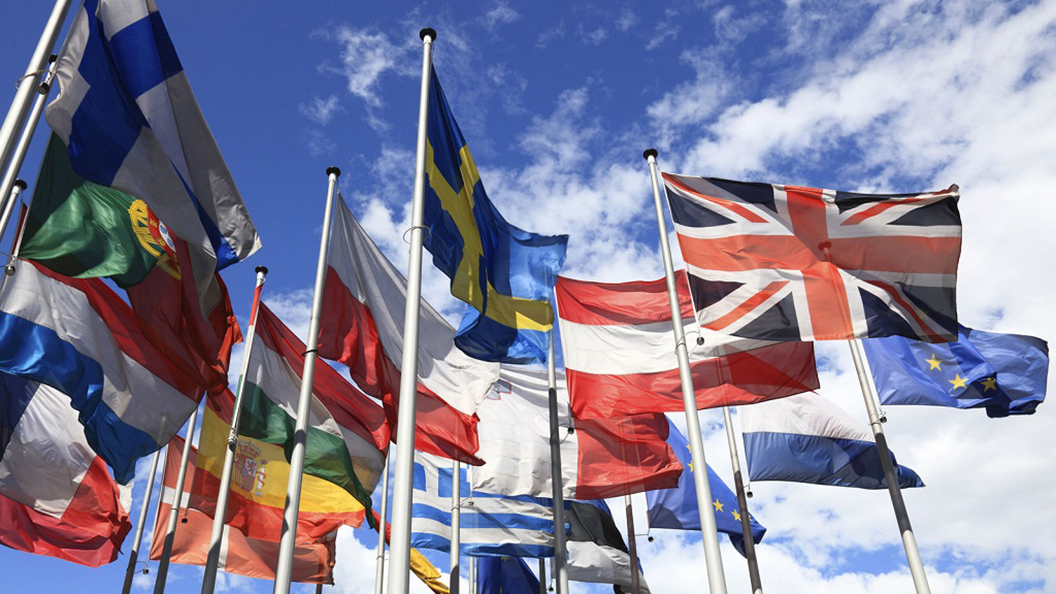
Published
- Economics
- Financing
- Markets
All eyes on African debt
Some countries in Sub-Saharan Africa may face debt restructuring as public finances suffer from a stronger dollar and higher import bills. EKN monitors the development closely and foresees a heightened interest in securing risk cover on private risk in an uncertain environment.
Regional debt in Sub-Saharan Africa is approaching levels not seen since the early 2000s, according to a new report from the International Monetary Fund (IMF): “In the context of rising global interest rates, access to funding will likely become much less forgiving. To build resilience and absorb the cost of a higher interest bill, authorities will need to continue consolidation. Further, credible medium-term fiscal frameworks – including effective debt management – can reduce exposure to shifts in risk sentiment and can lower borrowing costs. For some countries, debt reprofiling or restructuring may be needed.”
Debt restructuring obviously affects EKN, where Martin Sturinge, an analyst based in Dar es-Salaam, Tanzania, monitors the situation closely. “The debt situation has deteriorated over the past year and several countries are inching closer to a payment crisis. Some countries, including Zambia and Ethiopia, have already defaulted. Ghana is likely to default within the next six months.”
Rising food and energy prices have affected public finances adversely, while the stronger US dollar has made imports as well as dollar-denominated debt servicing much more expensive. Sturinge points out that many African countries accumulated debt during the years of “easy” money and also to weather the consequences of the pandemic. The average level of public debt in the region has risen from 35 percent of GDP 2010–2018 to 55 percent of GDP 2022, which adds a further strain. “It has become much harder to refinance existing debt in a tighter monetary environment globally.”
Sturinge, however, doesn’t see the debt accumulation as necessarily reckless or a bad thing in itself, given the substantial needs for investment in infrastructure such as railroads and ports, to sustain economic growth and improve quality of life. The African Development Bank has estimated that 100 billion euro need to be invested annually to this end.
Swedish exporters meet dire needs
Since Swedish exporters offer solutions for renewable energy production, sustainable public transport and other infrastructural needs, EKN is involved in several large-scale projects across the African continent, from solar energy in Angola to urban transport in Ghana, Cote d’Ivoire and Burkina Faso.
Despite the looming payments crisis in some countries, Sturinge says no projects where EKN is involved have been cancelled so far, and that Swedish exporters still view Africa as an opportunity. “The potential financiers, however, are becoming wary in the wake of reduced creditworthiness among borrower countries, and are more likely than ever to appreciate the risk cover that EKN can offer, which is up to 100 percent if the borrower is a sovereign.”
Africa is a huge continent and Sturinge points out that EKN monitors the situation on a country-by-country basis, upgrading or downgrading the risk levels, which in turn affect the guarantee premium. “So far, Chad, Zambia and Ethiopia have applied for debt restructuring within the G20 Common Framework1 and The Paris Club2. Ghana is probably next in line.”
In June, EKN downgraded the country risk of Ghana from 6 to 7 on a 7-point scale, whereas neighbouring Cote d’Ivoire was moved up a notch. EKN is participating in several projects in both countries. What has Ghana done wrong? “The country borrowed a little too much during the good years, while the public finances of Cote d’Ivoire are stronger on the back of its participation in the West African currency union.”
To be sure, the level of debt – coupled with sliding local currencies and a skyrocketing dollar – is a key reason behind the African problem. Debt on the books of most African countries is denominated in the greenback and its strength will have an adverse impact on their public finances and their ability to service their loan obligations timeously. A larger chunk of African debt is now in the hands of private creditors, who in recent time have become as important as their multilateral counterparts. These private creditors are less likely to be concessionary in terms of discussions around restructuring of debts.
“Much more complex debt environment”
Nevertheless, domestic as well as bilateral and multilateral creditors are treated alike at the table when all forms of debt are up for renegotiations at The Paris Club and within the G20 Common Framework. “The debt environment is much more complex today, with more different types of lenders from countries that aren’t members of The Paris Club, such as China, which is a large lender in Africa. Debt restructuring takes longer when different creditors come with different motivations and from different backgrounds. The shared goal, however, is to find co-ordinated and sustainable solutions to the payment difficulties experienced by debtor countries.”
As debtor countries undertake reforms to stabilise and restore their macroeconomic and financial situation, Paris Club creditors provide an appropriate debt treatment. And the transparency of the entire process goes a long way in easing worries, says Sturinge: “A planned and structured default is far better than a default on the eve of a scheduled payment, which would likely send the currency sliding downwards, further exacerbating a negative spiral.”
Theoretically, what are the options when it comes to debt restructuring? “Grace periods of deferred interest rate payments or amortisations are a few, whereas a complete debt write-off is obviously the least preferred choice from a creditor point-of-view. Debt write-offs typically also reflect badly on the creditworthiness of the debtor.”
As a credit insurer, EKN is obliged to settle claims from the creditor in the case of debt restructuring. “But that’s why we’re here,” says Sturinge and concludes on a positive note: “It’s not like the entire continent of Africa is heading for a massive debt crisis, even if some countries do suffer from a high level of debt and may need restructuring.”
International co-operation
The G20 Common Framework
Debt treatments under the Common Framework are initiated at the request of a debtor country on a case-by-case basis. The framework is designed to ensure broad participation of creditors with fair burden sharing. Importantly, it includes not only members of the Paris Club but also G20 official bilateral creditors such as China, India, Turkey or Saudi Arabia that are not members of the Paris Club.
The Paris Club
The Paris Club is a group of officials from 22 major creditor countries whose role is to find co-ordinated and sustainable solutions to the payment difficulties experienced by debtor countries. As debtor countries undertake reforms to stabilise and restore their macroeconomic and financial situation, Paris Club creditors provide an appropriate debt treatment.

International co-operation
EKN participates in several international networks: globally, within the OECD, the EU, the Berne Union, and in the Nordic region.
International co-operation